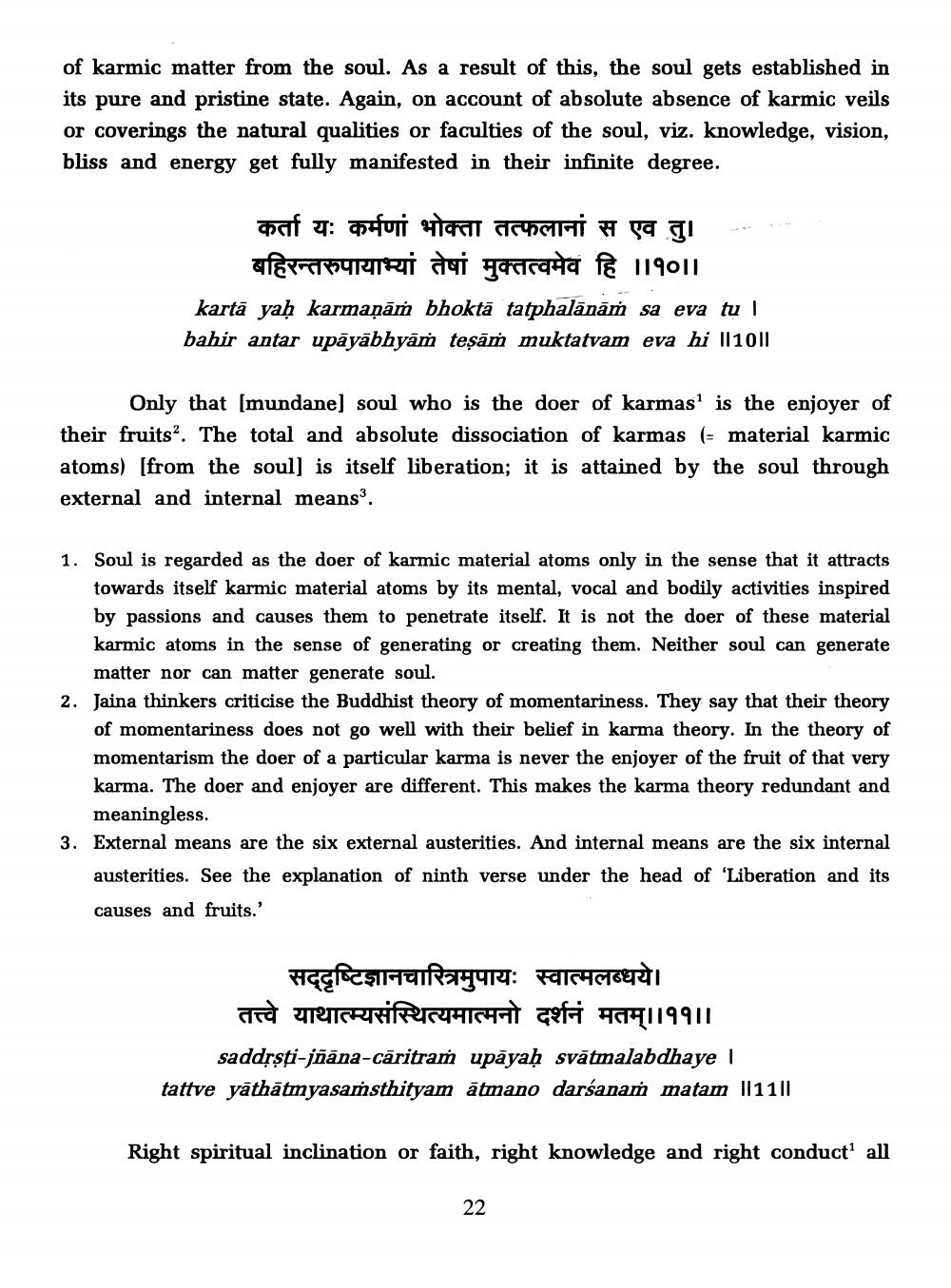________________
of karmic matter from the soul. As a result of this, the soul gets established in its pure and pristine state. Again, on account of absolute absence of karmic veils or coverings the natural qualities or faculties of the soul, viz. knowledge, vision, bliss and energy get fully manifested in their infinite degree.
कर्ता यः कर्मणां भोक्ता तत्फलानां स एव तु। .......
बहिरन्तरुपायाभ्यां तेषां मुक्तत्वमेव हि ।।१०।। kartā yaḥ karmaṇāṁ bhoktā tatphalānām sa eva tu bahir antar upāyābhyāṁ teşāṁ muktatvam eva hi ||10||
Only that (mundane) soul who is the doer of karmas' is the enjoyer of their fruits2. The total and absolute dissociation of karmas (= material karmic atoms) [from the soul] is itself liberation; it is attained by the soul through external and internal means".
1. Soul is regarded as the doer of karmic material atoms only in the sense that it attracts
towards itself karmic material atoms by its mental, vocal and bodily activities inspired by passions and causes them to penetrate itself. It is not the doer of these material karmic atoms in the sense of generating or creating them. Neither soul can generate
matter nor can matter generate soul. 2. Jaina thinkers criticise the Buddhist theory of momentariness. They say that their theory
of momentariness does not go well with their belief in karma theory. In the theory of momentarism the doer of a particular karma is never the enjoyer of the fruit of that very karma. The doer and enjoyer are different. This makes the karma theory redundant and meaningless. External means are the six external austerities. And internal means are the six internal austerities. See the explanation of ninth verse under the head of 'Liberation and its causes and fruits.'
3.
सदृष्टिज्ञानचारित्रमुपायः स्वात्मलब्धये। तत्त्वे याथात्म्यसंस्थित्यमात्मनो दर्शनं मतम्।।११।।
saddrsti-jñāna-caritraṁ upāyaḥ svātmalabdhaye 1 tattve yāthātmyasaṁsthityam ātmano darśanam matam ||11||
Right spiritual inclination or faith, right knowledge and right conduct all
22




